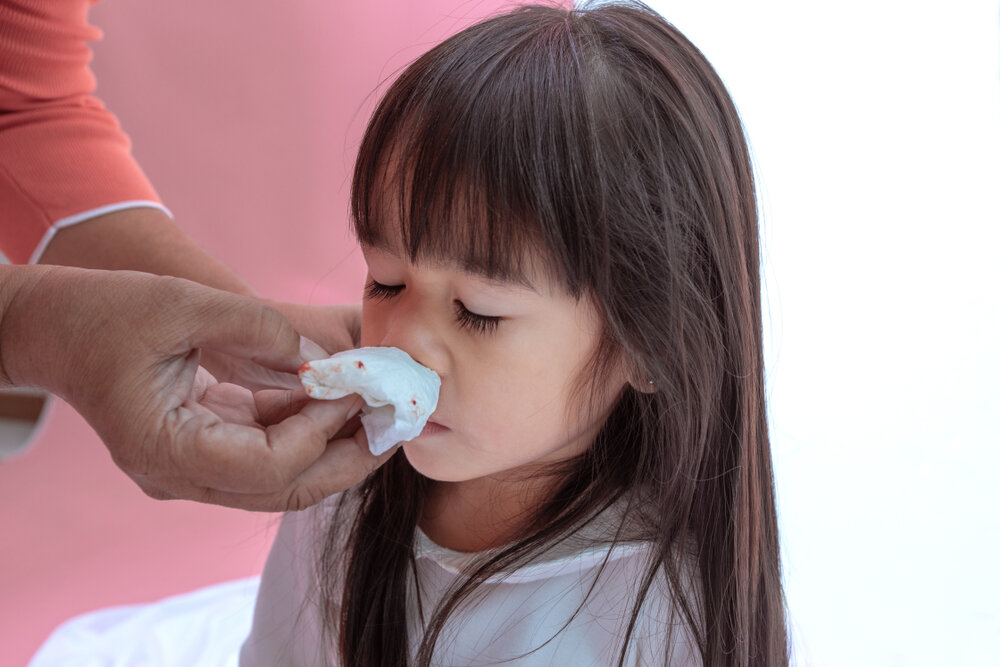Epistaxis most commonly arises from the front portion of the nasal septum, the wall that divides the nose into a right and left side. Although the quantity of blood may appear to be great, only a small amount is actually lost during most nosebleeds.

In children, bleeding is often caused by trauma or picking at dried mucous crust. Dryness contributes to nosebleed. This can be due to the environment, dehydration, or anatomic variations such as a septal deviation. Frequent nose blowing due to allergies, or an upper respiratory infection can lead to bleeding. Nosebleeds are common and frequently occur without any obvious cause.
If nosebleeds are a problem, give your patients the following instructions:
- Avoid nose blowing. When sneezing, keep mouth open so that the force of the air disperses through the mouth. Treat allergies and infections aggressively
- Avoid bending over, heavy lifting, or strenuous activity, especially contact sports
- Avoid aspirin, Motrin or Advil
- Avoid exposure to cold air
- Use nasal saline spray frequently
If bleeding occurs, instruct your patient to:
- Sit upright and lean slightly forward
- Grip the tip of the nose (soft part) between your index finger and thumb, and apply firm pressure for about 10 minutes
- A nasal decongestant spray can be placed into the nose, or ice can be place around the central face, to help constrict the blood vessels
- If bleeding does not stop, contact an ENT physician or send the patient to the local emergency room
Find an ENT & Allergy Associates Doctor Near You, or Explore More Blog Topics
